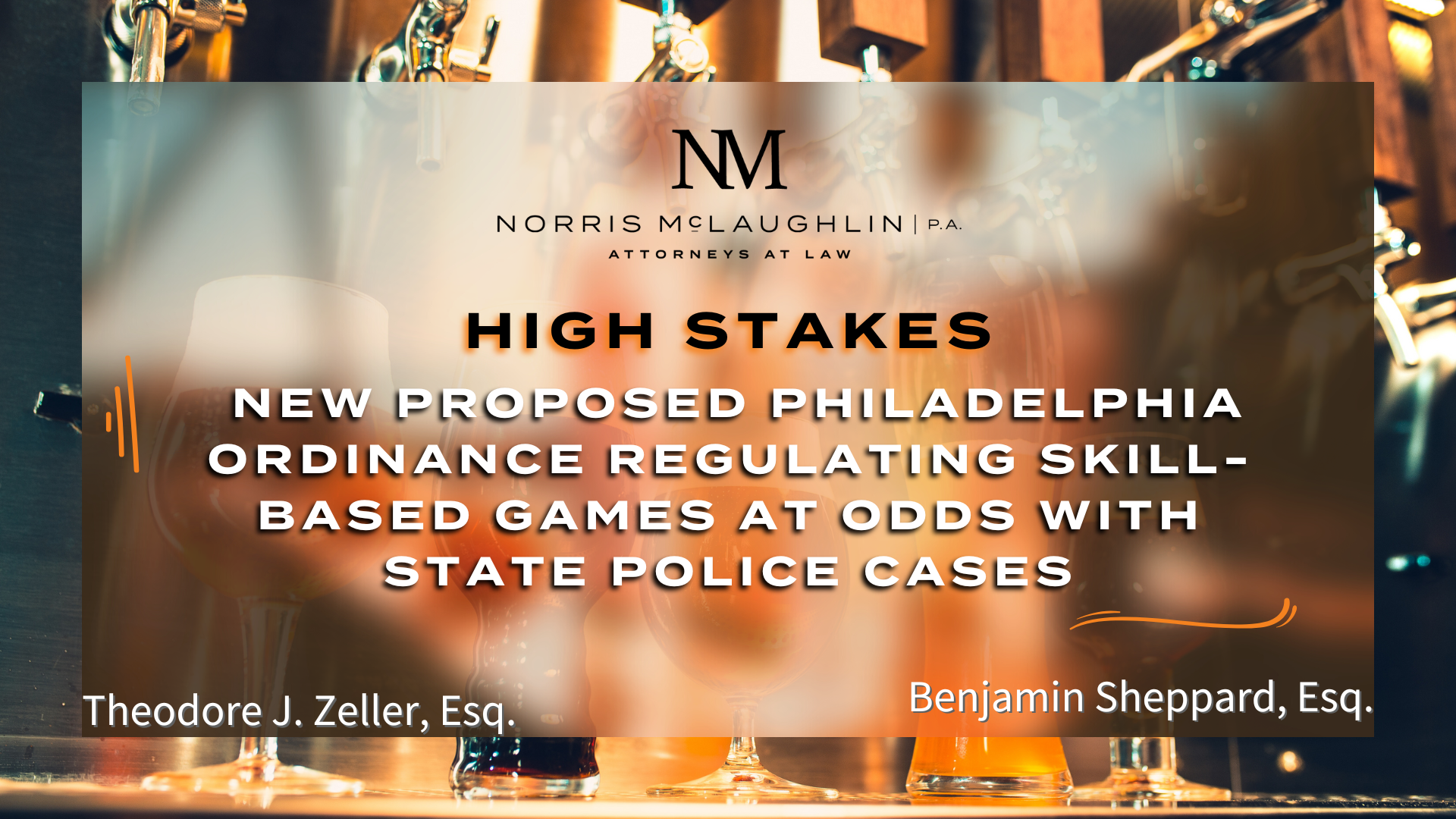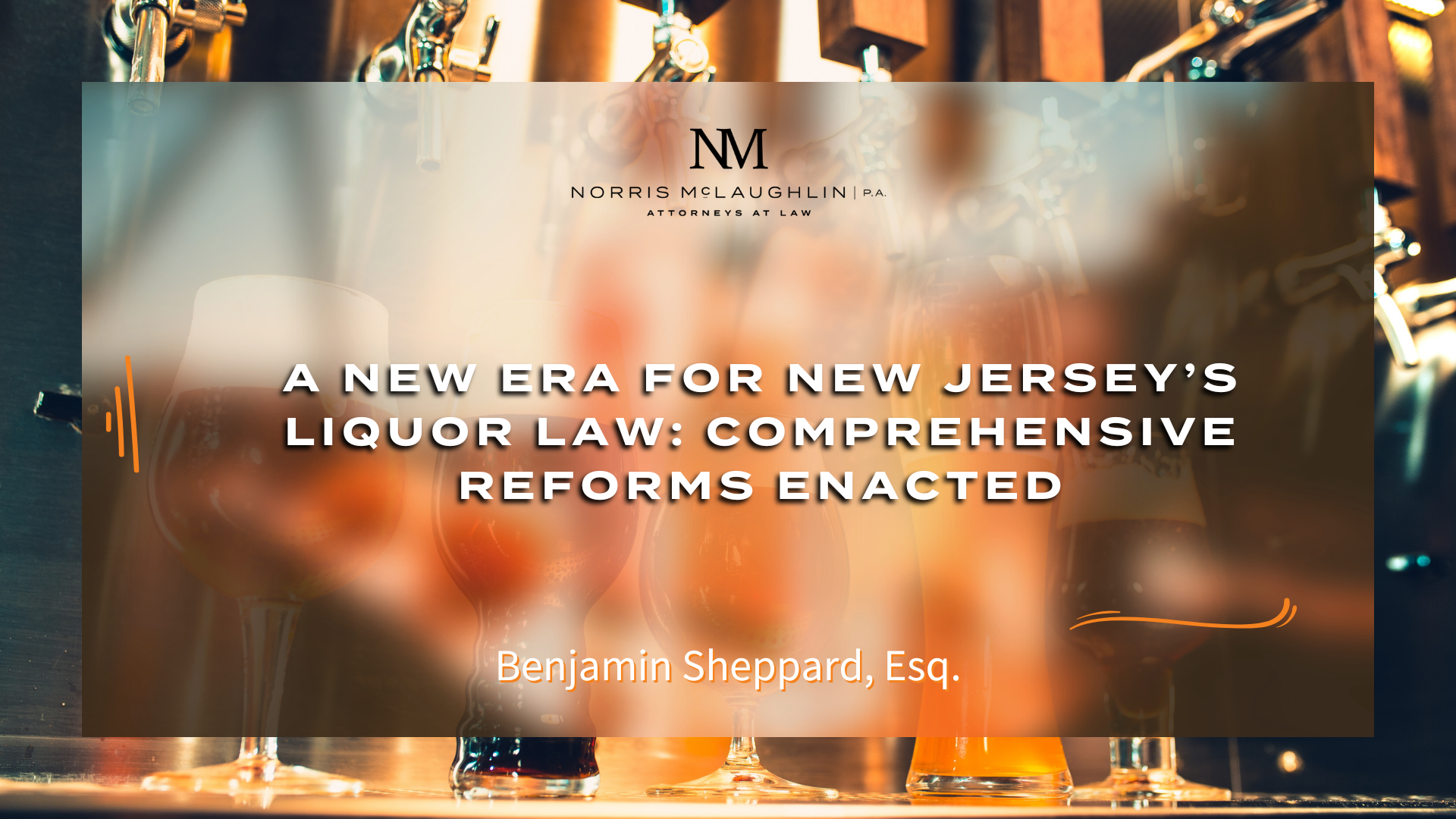Pennsylvania Liquor Control Board Puts Brakes on Convenience Store Plans

On September 11, the Pennsylvania Liquor Control Board (“PLCB”) issued a new Advisory Notice, Advisory Notice No. 24, regarding the on-premises consumption requirement for retail licensees in Pennsylvania.
Background
This has been a long-standing policy that all licensees have followed, consistent with a 2009 Pennsylvania Supreme Court ruling that found an Eating Place Retail Dispenser License (“E License”) holder could not prohibit customers from consuming beer on-premises. However, with the influx of Restaurant Licenses (“R License”) being used by convenience and grocery stores, there has been a push by those entities to have that requirement nullified.
A convenience or grocery store must meet the same Liquor Code definition of a “restaurant” as an actual restaurant, including the requirement to have food for 30 people, seats for 30 people, a health permit, AND to sell alcohol for on-premises consumption. There have been plans by convenience and grocery stores to stop permitting on-premises consumption at their locations, to the point that some have even announced corporate policy prohibiting consumers from consuming beer or wine on-premises. The PLCB has put the brakes on those plans in Advisory Opinion No. 24.
The PLCB certainly did not agree with the nullification of that requirement, and, at its July 31, 2019, meeting, it adopted a new policy that expands the requirement for on-premises consumption. Previously, the long-standing policy was to permit a customer of an R License holder to consume, at most, one beer on-premises if they wanted to. Although an R License holder could not completely prohibit the consumption of beer on-premises, it could limit it to one beer only. Generally, this policy to limit the amount of consumption on-premises has been favorably viewed by municipalities when a potential licensee was undergoing a zoning hearing or inter-municipal transfer of a liquor license for a convenience or grocery store. However, Advisory Notice No. 24 has now changed this policy.
What's New
The requirements for an R License holder are now as follows:
- Although an R License holder does not need to offer all types of alcohol at all times, an R License holder MUST permit the consumption of beer and wine on-premises at ALL times that it is offering beer and wine for off-premises consumption. For example, if the R License holder sells beer and wine from 10 AM - 2 AM, it must permit the consumption of beer and wine on-premises during those hours. If it sells beer and wine during different hours, it must offer either beer or wine for on-premises consumption only during the hours it is selling the individual products. Since R License holders are not able to sell liquor for off-premises consumption, there is no similar requirement to require on-premises consumption of liquor.
- The R License holder is required to permit the consumption of only ONE standard-sized drink of beer and/or wine per customer, per day. Consistent with current regulations, a standard-sized drink is 12 fluid ounces for beer and 4 fluid ounces for wine.
- Interestingly, an R License holder is NOT required to offer the same brands of beer and wine for on-premises consumption as it does for off-premises consumption. This leads me to believe that many R License holders will have a very limited supply of beer and wine to sell for on-premises consumption only. However, it will be interesting to see how this evolves in the future and see if anyone gets in trouble with the PLCB or Pennsylvania Liquor Control Enforcement for not letting someone drink a product on-premises that is sold for off-premises consumption only.
Conclusion
Ultimately, the biggest change in Advisory Notice No. 24 is that an R License holder selling wine for off-premises consumption must also permit its customers to consume wine on-premises. Additionally, the PLCB cleared up a grey area about whether on-premises consumption must be permitted at all times while alcohol sales are made. It will be interesting to see if this leads to fewer R License-holding convenience or grocery stores selling wine. Let’s be honest, who would not want a fine glass of Cabernet with your churro or hot dog?
For information regarding national and state liquor law matters or general manufacturing and distribution advice, please contact our Liquor Law, Licensing, Manufacturing, and Distribution Practice Group: Liquor Law Department Chair Theodore J. Zeller III, Esquire (tzeller@norris-law.com); David C. Berger, Esquire (dberger@norris-law.com) for Pennsylvania and New Jersey retail and manufacturing licensing; or contact our offices at 610-391-1800.




